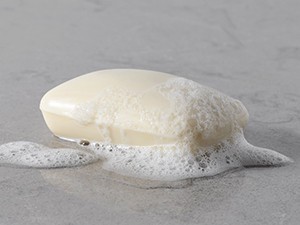 Wet bar of soap
Wet bar of soap
For many, starting the day without a shower is almost unthinkable. The daily shower is a deeply ingrained habit for a significant portion of the population in countries like the United States and Australia, where daily showering is common practice. Yet, when we look globally, showering habits vary dramatically. In places like China, showering a few times a week is more typical. This begs the question: how often should you shower for optimal health and hygiene? Is the daily shower truly necessary, or could it be more about societal norms than actual health benefits?
Why Do We Shower Every Day?
The reasons behind daily showering are varied. Many believe it’s simply the healthier option, a way to maintain cleanliness and ward off illness. Beyond health perceptions, other motivations include:
- Combating Body Odor: A primary driver for daily showering is the concern about body odor. In many cultures, daily hygiene practices are strongly linked to social acceptance and professional standards.
- The Wake-Up Effect: For some, a morning shower is an essential part of their routine, a way to feel refreshed and energized for the day ahead.
- Post-Workout Freshness: Individuals with active lifestyles often shower daily to cleanse after workouts and maintain a sense of cleanliness.
While these reasons are understandable, especially considering social expectations and the desire to feel clean, it’s worth examining whether daily showering is truly as beneficial as we often assume. Cultural norms and even marketing play a significant role in shaping our hygiene habits. Think about shampoo instructions that often suggest “lather, rinse, repeat” – a practice that isn’t essential for hair cleaning but certainly boosts shampoo sales.
The Unexpected Downsides of Daily Showers
When we consider the health aspect, the benefits of a daily shower become less clear. In fact, frequent showering can have surprising negative effects on your skin and body. Healthy skin naturally hosts a protective layer of oil and a balanced ecosystem of beneficial bacteria and microorganisms. This natural barrier is crucial for skin health. Daily washing, especially with hot water and harsh soaps, can disrupt this delicate balance, leading to:
- Dryness, Irritation, and Itching: Frequent showering strips the skin of its natural oils, leading to dryness, irritation, and uncomfortable itching. For individuals prone to eczema or sensitive skin, daily showers can exacerbate these conditions.
- Increased Risk of Infection and Allergic Reactions: Cracked, dry skin compromises its barrier function, making it easier for bacteria, allergens, and irritants to penetrate. This can increase the risk of skin infections and allergic reactions.
- Disruption of Skin Microbiome: Antibacterial soaps, often used with good intentions, can indiscriminately kill both harmful and beneficial bacteria on the skin. This imbalance can pave the way for more resistant, less desirable microorganisms to thrive.
- Weakened Immune System: Our immune systems benefit from exposure to normal microorganisms and environmental stimuli. Overly frequent showering and cleaning might reduce the necessary stimulation, potentially impacting the immune system’s ability to build defenses and “immune memory,” particularly in children.
- Exposure to Waterborne Chemicals: Tap water, while treated, can contain salts, heavy metals, chlorine, fluoride, and pesticides. Frequent and prolonged exposure to these chemicals through daily showering is a potential concern for some individuals.
The Case for Showering Less Frequently
While personal hygiene is important, over-cleaning may not be a significant health hazard in itself. The primary health concern associated with daily showering is likely skin dryness. However, the cumulative effects of water wastage and the potential issues related to chemicals in personal care products and water are worth considering. Many soaps, shampoos, and conditioners contain oils, perfumes, and additives that can trigger allergic reactions or sensitivities in some people. Furthermore, the environmental impact of daily showering, particularly in terms of water consumption, is a growing concern.
Finding Your Ideal Shower Frequency: How Often is Enough?
So, what’s the sweet spot? How often should you shower to maintain hygiene without compromising your skin health? While there’s no one-size-fits-all answer, experts suggest that showering several times a week is sufficient for most people. Unless you are heavily soiled, sweaty, or have specific reasons to shower more often (such as after intense physical activity), daily showers are generally not necessary.
For those concerned about body odor or who enjoy the feeling of daily cleansing, consider these tips:
- Focus on Key Areas: Instead of a full-body wash every day, opt for “strategic washing” of odor-prone areas like armpits, groin, and feet using a washcloth.
- Short Showers: If you do shower daily, keep it brief – around three to four minutes. This minimizes the drying effect of prolonged water exposure.
- Lukewarm Water: Hot water strips away more natural oils than lukewarm water. Opt for milder temperatures when showering.
- Gentle Cleansers: Choose mild, fragrance-free soaps or cleansers, and use them sparingly, focusing on areas that require cleaning.
- Moisturize: Apply a moisturizer immediately after showering, while your skin is still damp, to help lock in hydration and combat dryness.
Ultimately, determining how often you should shower is a personal decision. Listen to your body, observe your skin’s condition, and consider your activity level and lifestyle. If you’re showering daily out of habit or perceived necessity for health, it might be a habit worth re-evaluating. Prioritizing skin health and mindful hygiene practices can lead to healthier skin and a more sustainable routine.
